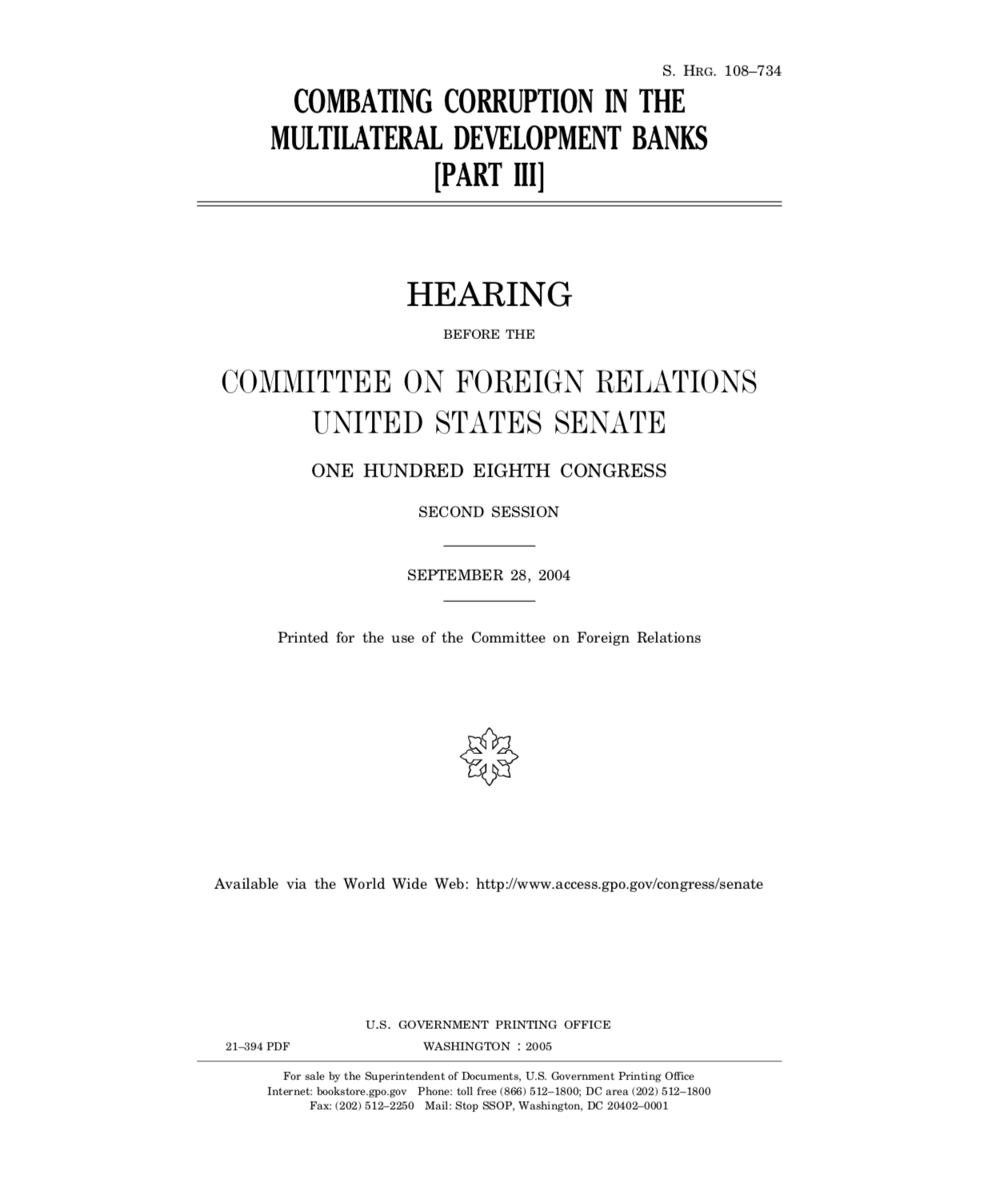- Bruce Rich
- September 28, 2004
- pp. 3-25, 36-49
As we heard in the previous two hearings, the cancer of systemic corruption threatens to undermine the purposes for which the MDBs were established. As much as 20 to 30% of World Bank lending and other donor funds, such as those from the ADB, may have been stolen in Indonesia, according to the World Bank’s Jakarta-based staff as expressed in leaked memos from the late 1990s. In countries with analogous levels of corruption, the amounts may be the same or even greater.The ADB has lent some $105 billion since its inception in 1966. Some of its major borrowers, such as Bangladesh, rank even lower on lists of international perceptions of corruption than Indonesia. If 30% of ADB lending has succumbed to ‘leakage’ over the years, that would amount to well over $30 billion in stolen funds.
You yourself, Mr. Chairman, correctly ventured that the total amount diverted from cumulative World Bank lending since the institution’s inception may be as much as $100 billion. Although the World Bank is in most respects the leader in anti-corruption efforts amongst the MDBs, there are serious questions about whether current efforts are adequate to deal with the scale of corruption that occurs in some of the World Bank’s major borrowing countries. These countries are also the major borrowers of the regional MDBs, including the ADB.The situation regarding control and oversight of corruption and diversion of loans appears to be much worse at the ADB than at the World Bank. To date, while the ADB has begun to take some relatively timid measures to address corruption, these measures are so inadequate that many informed observers within and outside the ADB would characterize them as cosmetic, whatever the stated intention. Like the other MDBs, the ADB suffers from the well-documented ‘culture of loan approval’—where staff are rewarded for processing and pushing loans, but not for monitoring projects and ensuring quality. But that the ADB suffers from a deeper organizational crisis is no secret, and over the past three years at least two non-U.S. Executive Directors of the institution have made public statements referring to a deeply entrenched institutional culture of patronage and unaccountability.



